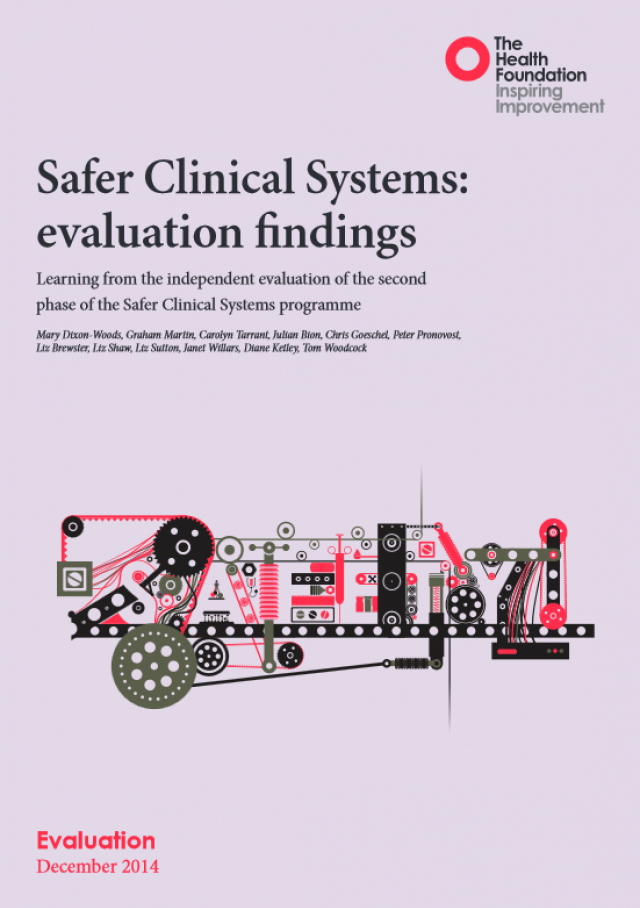Safer Clinical Systems: Evaluation findings Learning from the independent evaluation of the second phase of the Safer Clinical Systems programme
December 2014

Key points
- Many health-care systems and processes are unreliable and create the potential for harm to patients.
- Processes need to be redesigned to help make care safer based on systematic analysis of the hazards along care pathways.
- Small-scale, locally led improvement work has an important role to play in improving patient safety. However action also needs to be taken at an organisational and system level, to address problems beyond the control of clinical teams. Without it, there will be a limit to the level of improvement that can be achieved at the front line.
- Setting ambitious goals for patient safety without investing in developing systems that are capable of reliably delivering care is like asking drivers to drive vehicles more safely without investing in traffic lights, road signs or well-designed road layouts.
Patient safety problems exist throughout the NHS, as in all large complex health care systems in the world. However, it is not staff negligence but the systems, procedures, environment and constraints faced by health care professionals that lie at the root of most safety problems.
Through our Safer Clinical Systems programme, we explored how approaches from other hazardous industries could be used to improve safety in the NHS.
Safer Clinical Systems is an approach for improving safe and reliable health care. It is based on principles adapted from high-reliability organisations, established risk management techniques from hazardous industries, and quality improvement methods. The approach aims to improve patient safety not by imposing pre-defined solutions on organisations, but by developing their own capacity to detect and assess system-level weaknesses and introduce interventions to address them.
The Safer Clinical Systems approach was tested and developed over two phases of the Health Foundation's Safer Clinical Systems improvement programme. An independent evaluation of the programme was carried out by a team from the University of Leicester, University of Birmingham, Imperial College and Johns Hopkins University.
Safety Case Working Group
The Health Foundation's Safety Case Working Group aimed to crystallise an understanding of safety cases – both in terms of how they are applied in other industries and how they might be applied in health care. The group involved a broad range of individuals from health care policy, practice and regulation, together with academics with expertise in safety cases as well as those involved in developing safety cases as part of the Safer Clinical Systems programme.
The Working Group's report Exploring the Potential Use of Safety Cases in Health Care (see the Downloads section below) summarises their conclusions, explores possible applications of safety cases in health care and provides recommendations for further work.
Further reading
Work with us
We look for talented and passionate individuals as everyone at the Health Foundation has an important role to play.
View current vacanciesThe Q community
Q is an initiative connecting people with improvement expertise across the UK.
Find out more

